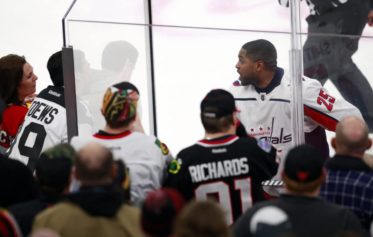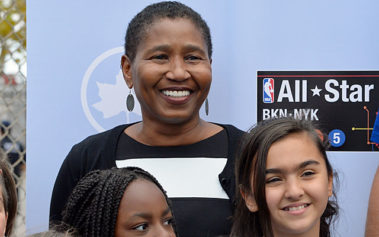NHL commissioner Gary Bettman and NHL Players’ Association Executive Director Donald Fehr announced Sunday morning that both sides have reached a tentative agreement for a new collective bargaining agreement.
The deal comes after 113 days of hard negotiating between both sides, but this is the first step of many. The agreement still requires language clarification, endorsement from both sides and legal fine-tuning, but both sides have reached a verbal agreement on all the major points.
“We’ve got to dot a lot of Is and cross a lot of Ts,” Bettman said. “There’s still a lot of work to be done.”
Before the deal can become official it must be approved by the NHL Board of Governors and the NHLPA membership.
But for now Fehr is pleased that a deal is in place after a 16-hour negotiating session that started early Saturday and ended around 5 a.m. Sunday.
“Any process like this is difficult, it can be long,” Fehr said. “We have the framework of a deal.”
The tentative deal is for 10 years with a mutual opt-out clause after eight years that includes contract term limits at seven years, but eight years for a team to re-sign their own players, according to ESPNNewYork.com
In the first year of the agreement the salary cap is $60 million but teams are permitted to spend up to $70.2 million in the transition period, while the salary floor will be $44 million.
Contract salary variance has been capped at 35 percent year-to-year, with the stipulation that the last year cannot be more than 50 percent of the highest-salaried year, according to ESPN.com
Each team will also be allowed two amnesty buyouts before the 2013-14 season and will count against the players’ share, according to CBSSports.com.
The new revenue sharing will be $200 million, which will include $60 million to a NHLPA-initiated growth fund.
The players were unyielding in not adjusting the free agency period from July 1. Owners wanted to move the free-agency period to July 10.
Shane Doan, a forward for the Phoenix Coyotes, admitted that the players knew this deal would not be easy to reach, but are pleased with the tentative terms that have been reached.
“You knew you were in that position and I think as a union we got the best deal we could possibly get, and you’re happy,” he said. “You’re just excited to play hockey again and do what you really enjoy and have a passion for.”
George Cohen, the Federal Mediation and Conciliation Service director, was brought in to help both sides reach a deal. He called the tentative agreement a success after talks stalled several times after almost reaching a resolution.
”Of course, the agreement will pave the way for the professional players to return to the ice and for the owners to resume their business operations,” he said in a statement. ”But the good news extends beyond the parties directly involved; fans throughout North America will have the opportunity to return to a favorite pastime and thousands of working men and women and small businesses will no longer be deprived of their livelihoods.”
Once both sides ratify the agreement, the NHL is hoping to have a 48 or 50-game season. The 50-game season would start Jan. 15, while a 48-game season would start Jan. 19, according to ESPN.com’s Pierre LeBrun.
All games through Jan. 14 had already been cancelled, which included the All-Star game and the New Year’s Day Winter Classic.
Now fans, players, coaches and owners can get back to enjoying the sport they desperately missed.
“Everyone’s obviously relieved it’s over and done with, for all intents and purposes, and we’re able to kind of move on to what we all enjoy doing a lot more than this,” Doan said.

